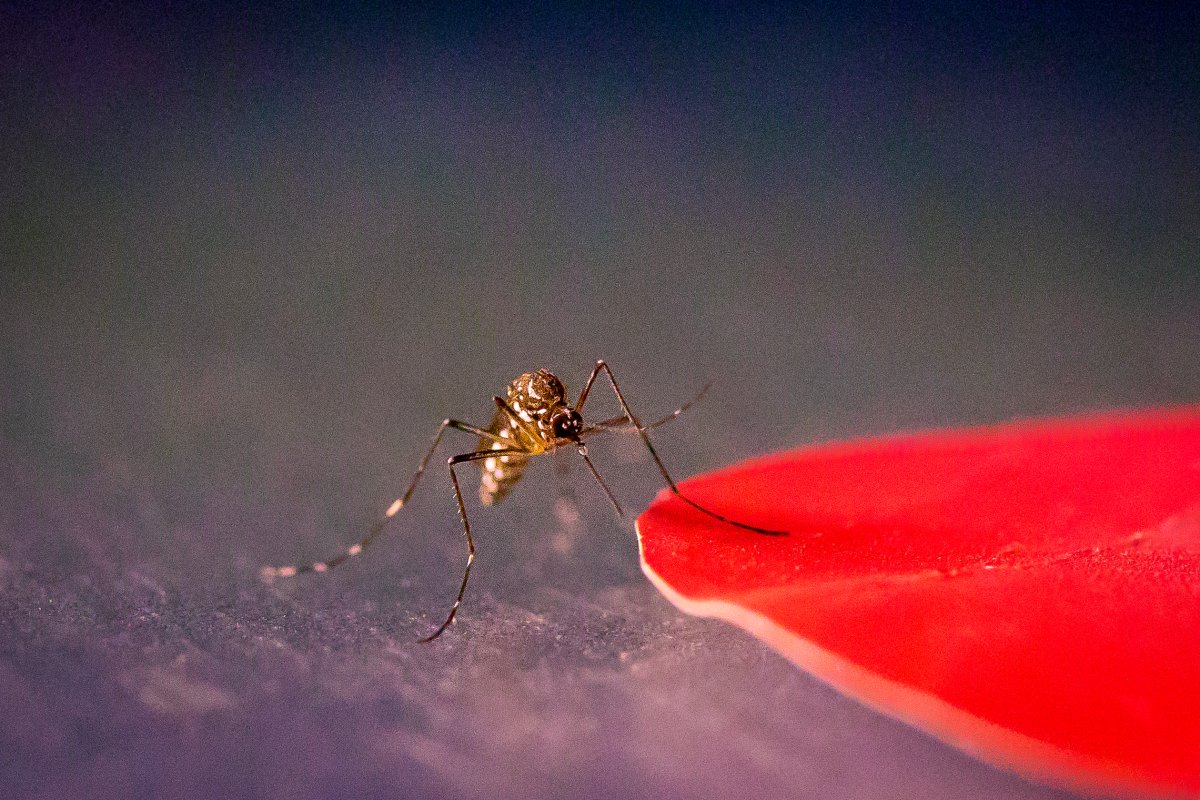A new scientific study suggests that what you wear could help alleviate the scorn of mosquitoes.
Researchers at the University of Washington led the study, which concluded that wearing colors like red, orange, black and cyan attracts mosquitoes to your body. On the other hand, wearing clothing composed of colors including green, purple, blue and white may actually deter different species of mosquitoes.
The study, titled "The olfactory gating of visual preferences to human skin and visible spectra in mosquitoes," was published February 4 in Nature.

Jeffrey Riffell, a professor of biology at the University of Washington and a lead author of the study, told Newsweek that scientists previously knew very little about the color preferences of mosquitoes in general.
"There's only been like a handful of studies before this and the work was very contradictory," he told Newsweek.
The study is important for numerous reasons, he noted, including how it "could have very strong impacts" on developing new traps on mosquitoes that carry certain diseases. Also, in addition to testing theories on how clothing can attract or divert mosquitoes, color patterns in and around homes may also have the same effects.
Researchers primarily studied the Aedes aegypti species of mosquito, which can transmit yellow fever and Zika.
Riffell explained that mosquitoes' ability to smell carbon dioxide, which human beings cannot, activates their visual sense. Mosquitoes essentially smell a potential host first and then activate their visual senses to locate said host.
He said it was analogous to humans walking down the street and getting a whiff of some kind of food or sweets, causing the individual to look around for where the smell is coming from—such as a bakery.
"What was interesting about the study was that the mosquitoes didn't sort of pay attention to the colors or visual objects," he told Newsweek. "But once you gave them CO2, it's this cue from our breath that they really become activated."

He said that prior to conducting this study, the three major cues that attracted mosquitoes included human breath, sweat and skin temperature.
"CO2 travels far distances," Riffell said, including mosquitoes' ability to smell it from as far as 100 feet away. "Their vision is not as good as ours, but they can start seeing us from 20 feet away or so. Once they see us, they investigate us."
Now, Riffell said another cue is integral to understanding mosquitoes' attraction to humans: the color red located in human skin.
These orange-red colors present in skin emit a type of signal to mosquitoes to detect and locate hosts.
"No matter what your pigmentation or skin tone, across all humans we're really reflecting in these colors. [I]t's tricky," he said. "The mosquitoes have all of these redundant systems, so they're not only detecting us by CO2 but they're looking at us visually for red, but they're also looking for heat or body vapor for sweat."
The study was conducted in a very large wind tunnel about 8 feet long, 3 feet wide and 3 feet tall. About 1.3 million mosquitoes were released in the tunnel, allowing Riffell and his cohorts to simulate the natural environment—providing wind, proper lighting and odor and visual cues.
He said this study could be utilized in the future to determine how cues are combined by mosquitoes, and how different species of them can recognize humans by integrating different cues and identifying genes.
There's also the aspect of brain integration, which Riffell called "mosquito neuroscience."
"What makes this I think a really important study is we identified the colors that they find attractive and we are producing," he told Newsweek. "It's like their signature. We can make ourselves basically invisible to the mosquitoes by using these optical filters."
Uncommon Knowledge
Newsweek is committed to challenging conventional wisdom and finding connections in the search for common ground.
Newsweek is committed to challenging conventional wisdom and finding connections in the search for common ground.
About the writer
Nick Mordowanec is a Newsweek reporter based in Michigan. His focus is reporting on Ukraine and Russia, along with social ... Read more
To read how Newsweek uses AI as a newsroom tool, Click here.






